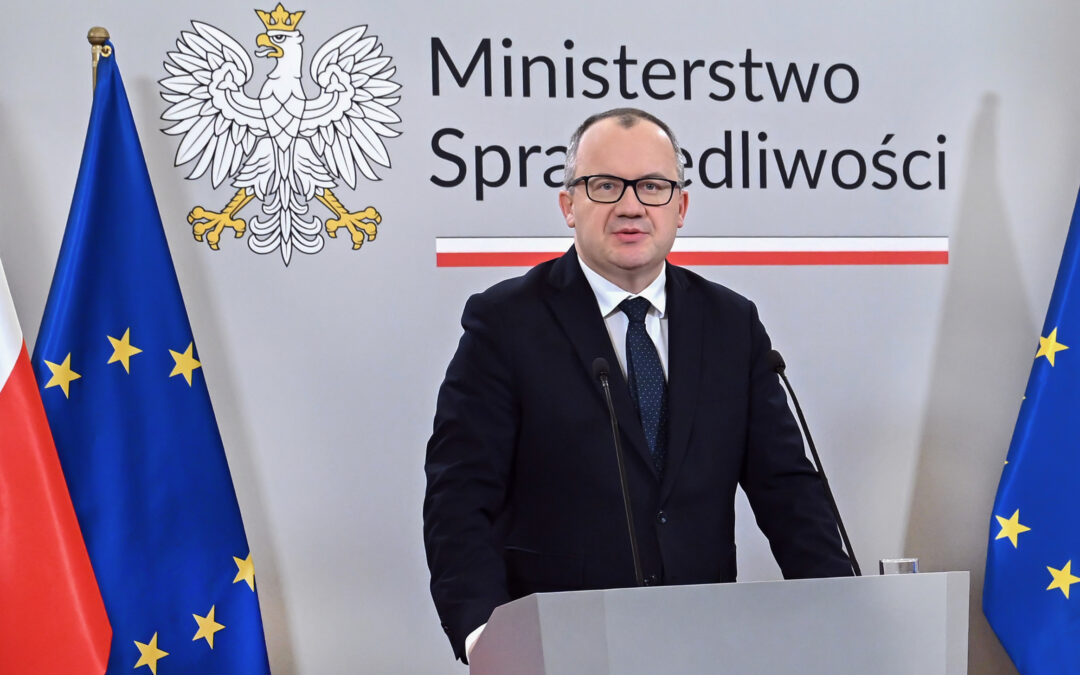Keep our news free from ads and paywalls by making a donation to support our work!

Notes from Poland is run by a small editorial team and is published by an independent, non-profit foundation that is funded through donations from our readers. We cannot do what we do without your support.
Poland’s justice minister and public prosecutor, Adam Bodnar, has requested that the Supreme Court order a recount of votes from the recent presidential election at almost 1,500 polling stations due to possible irregularities.
The request comes amid continued controversy over allegations – which have been confirmed in a handful of cases – of errors in the counting of votes. They have led some politicians, including Prime Minister Donald Tusk, to suggest a recount of all votes may be necessary.
W odpowiedzi na przekazane przez Sąd Najwyższy protesty wyborcze przekazałem dziś kolejne stanowiska Prokuratora Generalnego.
Dwa z nich dotyczą protestów złożonych przez Krzysztofa Kontka oraz Joannę Staniszkis. Zostały one przekazane przez Sąd Najwyższy Prokuratorowi…
— Adam Bodnar (@Adbodnar) June 25, 2025
On Wednesday, Bodnar’s office announced that he had filed a request for an inspection of ballots – in effect meaning a recount – at 1,472 polling stations. That represents less than 5% of the just over 32,000 polling stations in Poland.
Bodnar said that his concerns stemmed from analyses carried out by Krzysztof Kontek, a statistician from the Warsaw School of Economics, and Joanna Staniszkis, a mathematician and local councillor for Poland’s main ruling Civic Coalition (KO).
In a paper published by Kontek, he argues that the anomalies could have led to a shift in votes big enough to have changed the result of the election, which was won by opposition candidate Karol Nawrocki, who beat KO’s Rafał Trzaskowski by a margin of around 370,000 votes.
However, in an interview with Wirtualna Polska, a leading news website, data analyst Jakub Kubajek disputed this, claiming that his analysis shows that, even if errors occurred in 1,500 polling stations and were all in favour of Nawrocki, this would only amount to a shift of around 27,000 votes.
A number of other commentators and analysts also cast doubt on Kontek’s methodology. However, in their statement, Bodnar’s office said he had “found some of the allegations contained in [Kontek and Staniszkis’s] protests to be justified and influencing the election result”.
“Their allegations were based on a scientifically verifiable method, which allowed the prosecutor general to determine that there is a high probability of irregularities in the work of the indicated electoral commissions,” added the statement.
Among the problems identified by the analyses were “excessive support for one of the candidates; an unnatural increase in the number of votes between [the first and second] rounds; a reversal of the result contrary to local trends; an incredible drop in the number of votes for the opposing candidate”.
🤯Odtworzyłem 1-do-1 model dr Kontka uzyskując analogiczne rezulaty
Szybki wniosek: metodologia ciekawa ale oparta na jednym fatalnym założeniu. "Anomalie" wykrywane są na bazie odchyleń od mediany liczonej na bardzo małych grupach 10-25 komisji wyborczych.
Przy tak małej… pic.twitter.com/tQKtM8NAu3
— Maciej Wilk ✈️🌎🇵🇱 (@MacVVilk) June 25, 2025
The Supreme Court is currently going through the process of assessing over 54,000 complaints that were lodged in relation to the elections. It has until 2 July – Wednesday next week – to process them all and issue a ruling on the validity of the election results.
On Wednesday, the court decided not to take any action in response to the protest lodged by Kontek based on his analysis. Bodnar called the decision “incomprehensible” and “outrageous”. The protest lodged by Staniszkis is still yet to be assessed.
A further complication is added by the fact that the legitimacy of the Supreme Court chamber tasked with assessing election protests and validating the result is not recognised by the government and European courts due to being staffed by judges illegitimately appointed under the former Law and Justice (PiS) administration.
Two judges of the Supreme Court chamber tasked with validating the results of the presidential election have been removed from duty after questioning the legal status of the chamber, which is regarded as illegitimate by the government and European courts https://t.co/1OpAlEPk27
— Notes from Poland 🇵🇱 (@notesfrompoland) June 24, 2025
However, the same chamber also confirmed the results of the 2023 parliamentary elections that brought the current government to power, as well as the 2024 local and European elections that were won by the ruling coalition.
Critics therefore accuse Tusk’s government of only raising concerns now because their candidate, Trzaskowski, lost the presidential election to Nawrocki, who was supported by PiS.
Last week, Nawrocki appealed to Tusk not to “destroy democracy” by calling into question the validity of his election victory.
President-elect @NawrockiKn has appealed to PM @donaldtusk not to “destroy democracy” by calling into question the validity of his election victory.
His remarks come after Tusk suggested a full recount of votes could be necessary due to irregularities https://t.co/PpV2OV90mR
— Notes from Poland 🇵🇱 (@notesfrompoland) June 22, 2025

Notes from Poland is run by a small editorial team and published by an independent, non-profit foundation that is funded through donations from our readers. We cannot do what we do without your support.
Main image credit: Ministerstwo Sprawiedliwości (under CC BY-NC-ND 3.0 PL)

Daniel Tilles is editor-in-chief of Notes from Poland. He has written on Polish affairs for a wide range of publications, including Foreign Policy, POLITICO Europe, EUobserver and Dziennik Gazeta Prawna.



















